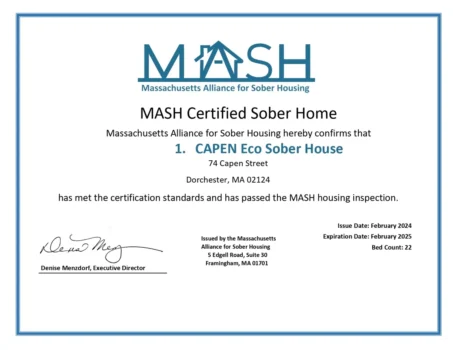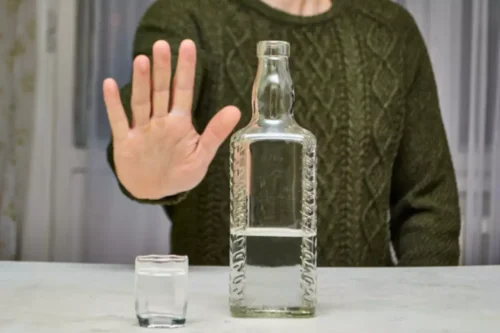
It causes us to strive toward bettering our lives and our world, and has led to many of the discoveries and inventions that have provided us with a higher quality of life. Yet despite all that we can achieve and possess, we can become convinced that we won’t be happy or contented unless we acquire even more. This unwholesome belief can lead to competitiveness and feeling resentful toward, or envious of, those who seem to have an easier life. Though mechanistic research on MBIs has begun to amass, there are few psychophysiological and neuroimaging studies of MBIs as a treatment for addiction. Thus little data exists to either support or refute the neural mechanistic models proposed in this section. Additionally, it’s vital to view meditation as a supplementary component of a broader recovery strategy, not as the sole solution.
How do trees and green spaces enhance our health?
Being able to stay calm and in control is a necessary part of long-term addiction recovery and using relaxing meditation exercises will help you deal with stress in a productive way. That’s precisely the moment when adding mindfulness and meditation to your addiction recovery program could reboot your enthusiasm and re-energize your journey. As people gain experience in recovery they still face the stresses of everyday life.
Meditation Therapy, Focus, And Awareness
Noticing the little things will ground you in the present moment—the place where you live your life. Meditation and other mindfulness exercises work much the same way, and empower you to intentionally reshape your brain in ways that bring greater control, awareness, and happiness to your life. Although it has many forms, meditation is usually practiced by sitting and quietly observing your body or thoughts. Some people focus on their breath, and feel it swell inside their chest before they slowly exhale.

Decreasing stress reactivity

“Mindfulness isn’t difficult, we just need to remember to do it,” wrote the meditation teacher Sharon Salzberg. By remembering to take part in these mindfulness practices every day, our journey of recovery can become ever deeper, more meaningful, and more rewarding. Studies have shown that mindfulness activities can actually reshape your brain in positive ways, improving physical and mental health and promoting overall well-being. It can help tame your anxiety, provide a greater self-awareness, and help you acknowledge and cope with emotions that may not be rooted in reality. This type of meditation is usually practiced in a peaceful, quiet setting while sitting in a comfortable position.
This practice can act as a grounding technique, helping to center thoughts and emotions, particularly during moments of temptation or stress. For those seeking expert support, listening to recorded guided meditations or attending meditation classes can be incredibly beneficial. Hazelden Betty Ford’s Thought for the Day offers daily meditations for people in recovery or affected by addiction to alcohol or other drugs. Browse daily passages from our most popular meditation books to find your inspiration today. The phrase “just like me” is sometimes used in mindfulness meditations to promote compassion.
- Although the authors did not include a formal search for “gray literature” related to MBI treatment of substance misuse, they noted that funnel plots and Egger’s test analyses suggested that their findings were not likely due to publication bias.
- As this happens, start setting intentions for yourself as you meditate – such as resolving to let go of anger or working on being more patient.
- Or, does mindfulness facilitate attentional disengagement and recovery from drug cue-exposure?
- It’s about understanding your own body and the world around you to help you repair the damage done by your substance addiction, so it’s important to know yourself and your needs, as well as what type of meditation works for you.
- Fortunately, practicing mindfulness and meditation techniques doesn’t require special equipment or training.
When meditating, it’s important to be nonjudgmental and give ourselves the freedom to simply exist as we are. It’s okay if you’re having a bad day addiction meditation kundalini at work or are struggling with your finances. You don’t need to be perfect, especially not when stopping to meditate and calm yourself down.
- Stress, anxiety, poor sleep, pain, depression and drug cravings are common complaints as people adjust to life without substances.
- “Mindfulness isn’t difficult, we just need to remember to do it,” wrote the meditation teacher Sharon Salzberg.
- The goal of this article was to systematically review the existing evidence on mindfulness meditation-based interventions (MM) for SUDs.
- You don’t need any special training or equipment to practice mindfulness and meditation.
- If she chooses to attend the party, she can use mindfulness to monitor and regulate her experience of craving in response to substance-related cues.
A calm nervous system enhances the overall quality of sleep, and during times of wakefulness, it enables better moods. Furthermore, those suffering emotionally imbalanced thoughts from disorders like Obsessive Compulsive Disorder can learn to observe thoughts without attachment. Meditation therapy also allows someone to actively regain control over impulses. For example, transcendental meditation has been used to reduce drug, alcohol, and Nicotine abuse and the risk of relapse. If you’re going to turn meditation into a daily routine, then you need to be consistent about when and where you do it. This turns it into a habit and makes you less likely to forget or lose time.

For example, being mindful throughout the day can be difficult, and it’s often easy to lose focus. Fortunately, practicing mindfulness and meditation techniques doesn’t require special equipment or training. You don’t have to worry about spending extra on external tools or expenses, you just have https://ecosoberhouse.com/ to be patient with yourself as you learn these techniques. Meditation is becoming more available as a holistic treatment for substance abuse. Individuals seeking a life of transformation can begin so by contacting a treatment provider who can place them in a facility offering yoga and meditation.
